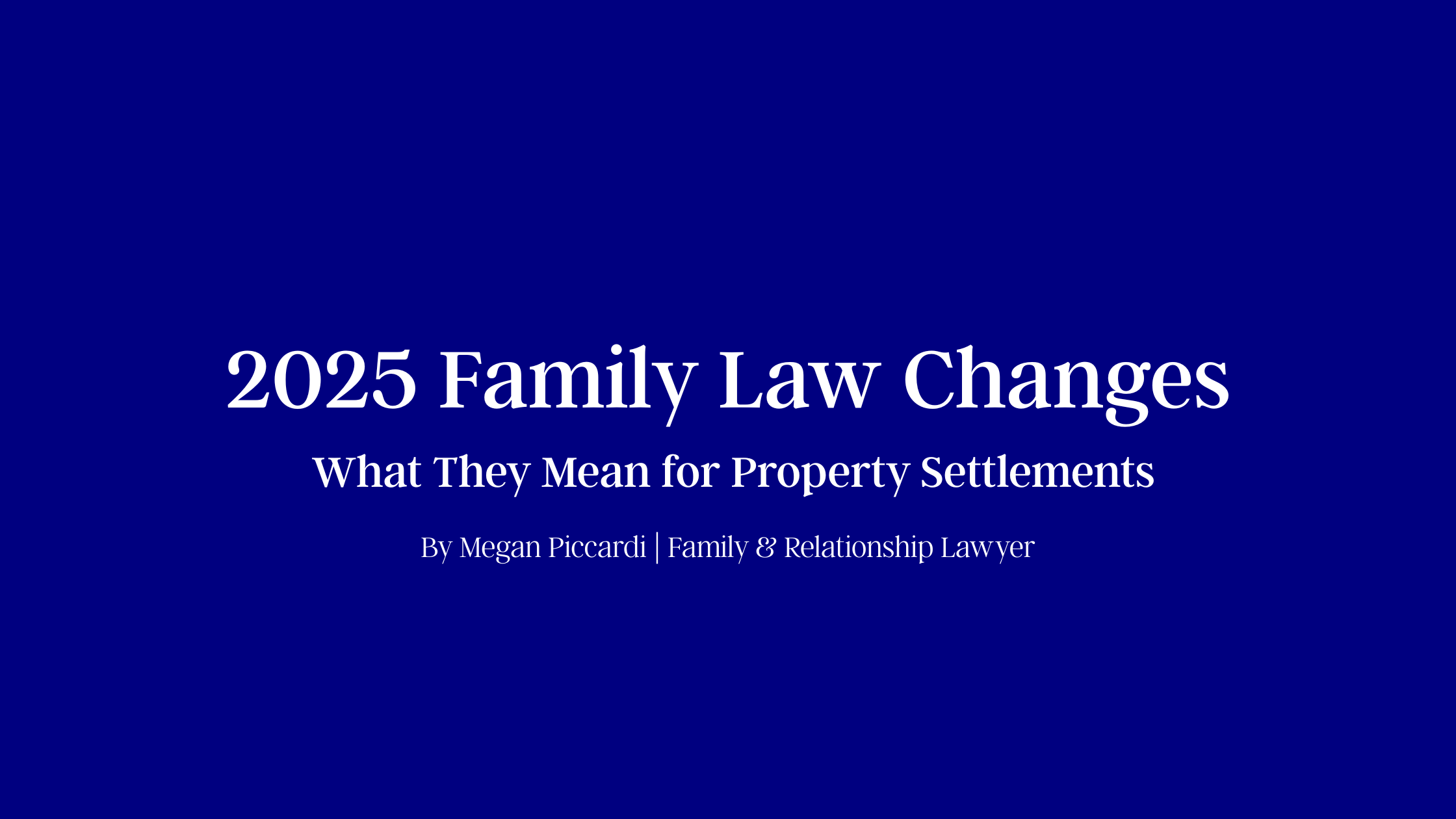On 10 June 2025, the Family Law Amendment Act 2024 came into effect, bringing the most significant changes to family law property settlements in decades. These reforms reshape how courts (and separating couples) approach dividing assets after a relationship breakdown.
At Piccardi Fry Lawyers, we know that navigating property settlements can already feel overwhelming. These changes aim to bring more clarity, fairness, and structure to the process. Here’s what you need to know.
The New Four-Step Process
The amendments have now codified the four-step process for property settlements, moving it from case law into legislation. This provides clearer guidance for both separating couples and the courts.
The steps are:
- Identify and value the property pool – including all assets, liabilities, and financial resources.
- Assess each party’s contributions – covering financial, non-financial, homemaking, and parenting contributions.
- Consider future needs – with an expanded list of factors enshrined in the Act.
- Ensure the outcome is just and equitable – at any stage of the process, the court can step back and check if the division is fair in all circumstances.
Recognising the Impact of Family Violence
A key change is the way family violence is now factored into property settlements. The law expressly requires the court to consider how family violence has affected a person’s ability to contribute during the relationship.
For example, if one partner’s ability to work, parent, or contribute financially was limited by family violence, this will now be recognised in the property adjustment process.
Expanded Future Needs Factors
The reforms also broaden the list of “future needs” considerations, ensuring a more comprehensive and compassionate approach. The court will now specifically look at:
- The effect of family violence on current and future circumstances.
- Who has the primary care of children under 18, and the need to provide stable housing.
- Whether there has been intentional or reckless wastage of assets or resources.
- The nature of liabilities or debts held by either or both parties.
This provides clearer guidance for families and allows lawyers to give more accurate advice about potential outcomes.
Why These Changes Matter
For separating couples, these amendments should make the process fairer, more transparent, and less adversarial. For example:
- Victims of family violence will see their experiences recognised in property settlements.
- Parents who take on the main care of children will have their responsibilities properly factored into the division.
- There is less room for technical disputes about contributions, and more focus on outcomes that work for the whole family.
At Piccardi Fry Lawyers, we welcome these reforms. They bring clarity to a process that can be emotionally draining and legally complex.
If you are considering separation, or are already negotiating a property settlement, it is important to seek advice tailored to your circumstances. Our family law team can help you understand how these 2025 amendments apply to you and guide you toward a fair and workable outcome.
Contact our experienced Brisbane family lawyers at Piccardi Fry Lawyers, Wynnum and Morningside, for clear advice on property settlements, divorce, parenting arrangements. Our team is here to guide you with practical solutions and compassionate support every step of the way.
About the Author
Megan Piccardi is a Brisbane-based family and relationship lawyer at Piccardi Fry Lawyers, with offices in Wynnum and Morningside. Practising since 2016, Megan has guided countless families through separation, divorce, parenting arrangements, child support and property settlements with clarity, compassion and practical solutions.
As the founder of @thatlawyermum and Sunday Mum Club, Megan combines her professional expertise with real-life experience as a mum and business owner, making her uniquely placed to support clients through life’s most challenging moments.



